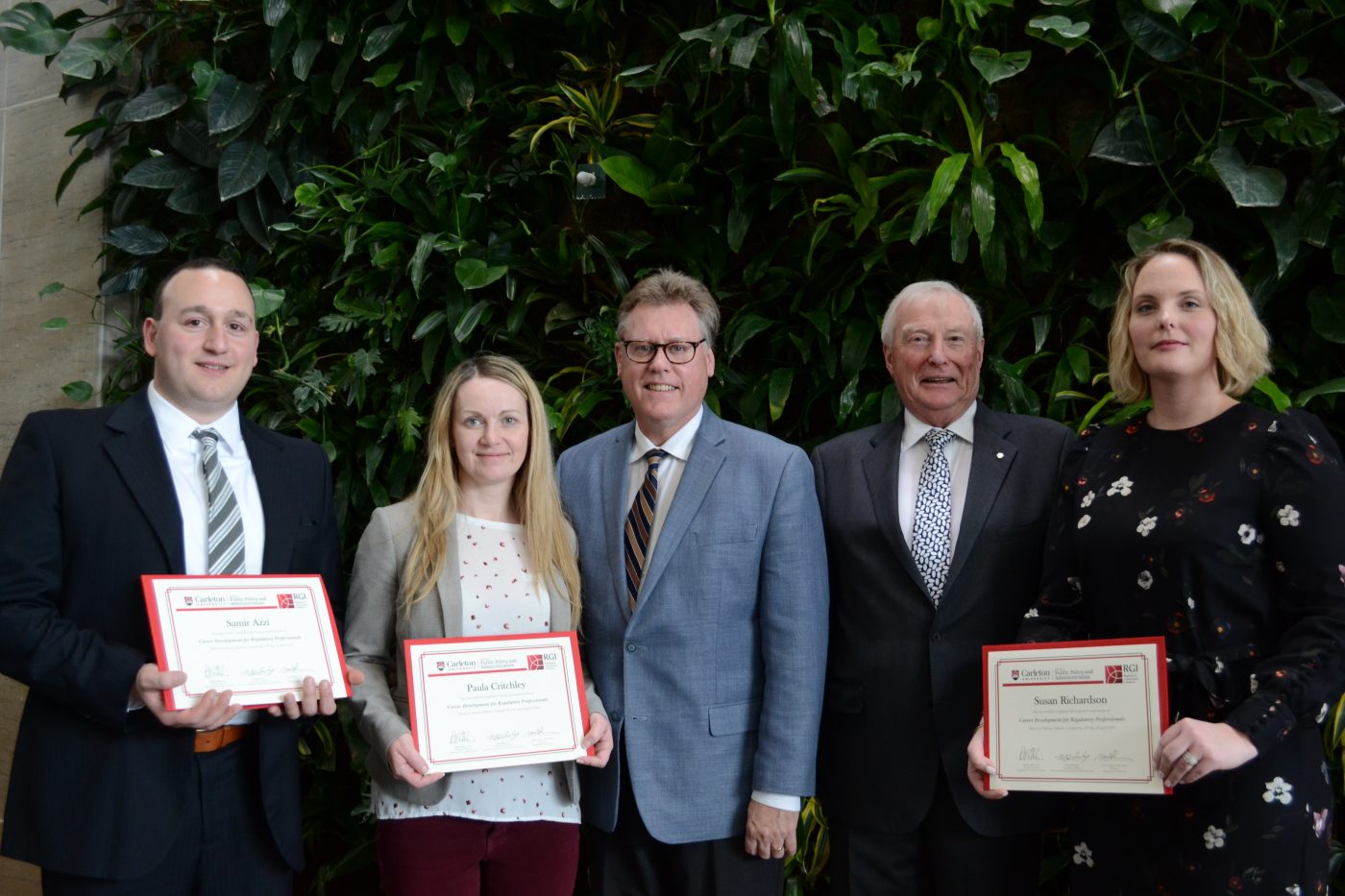By Matt Gergyek
The first class from Carleton’s new Career Development for Regulatory Professionals (CDRP) program offered by Carleton University’s School of Public Policy and Administration graduated in May.
The first graduating class included a cohort of 24 students from across the regulatory sector.
The course was assembled by professors Robert Slater, Michael Presley and J. David Miller, along with Heather Birchard from Environment and Climate Change Canada. It’s designed to help employees who have recently entered the regulatory sector expand their skill sets by focussing on the interactions of regulatory policy, the private- and not-for-profit sectors, and citizens as a whole.
“Governments do three things: they tax, they spend and they regulate,” said Slater. “The first two receive a great deal of attention; the third one, not so much, but it’s hugely important.”
The course equips regulatory professionals with the tools to expand their technical expertise take knowledge and turn it into leadership action.
“These people work in their own environments within their own departments and agencies, often within their own sub-programs,” said Presley. “It’s extraordinarily helpful for them professionally to be able to meet people who are worrying and thinking about the same things they are, but in a different context.”
The course consists of five modules, each two-and-a-half days long, roughly two months apart from each other. The content includes a mixture of group work, readings and lectures from regulatory power players in government and the private sector.
“It’s about adapting practical, new, innovative solutions to solve problems with lower cost and greater effectiveness,” Miller said.
The large majority of people in the regulatory space have backgrounds in science and engineering, programs where the strategic and public policy issues are not generally covered, Miller said. This program helps to fill that gap.

All three founding professors have extensive backgrounds in the regulatory field.
Slater embarked on a widely successful career with Environment and Climate Change Canada (ECCC), shaping the country’s environmental policy, specifically on acid rain. He also helped formulate the Great Lakes treaty with the United States and made important changes to outdoor air quality regulations. Recognition of his leadership and vision led to his appointment to the Order of Canada in 2009.
Presley is a Carleton public administration graduate. He transitioned to the regulatory department of the federal government, where he worked closely with the transportation, agriculture, food and environmental sectors before retiring from the Treasury Board Secretariat.
Miller spent nearly 20 years at Agriculture Canada before arriving at Carleton, where he researches and teaches in the areas of fungal toxins in food, as well as housing and health, contributing to regulatory processes nationally and internationally.
“The program is an example of what a university can do in creating a . . . neutral, objective and analytical space that doesn’t get spooked by exposure to new ideas,” Slater said.
“I think that probably as many as half . . . of this cohort will be senior managers in the Canadian government, or other governments for that matter,” Miller said. “I would hope that they will look back and say that this experience accelerated their progress.”
The course will run again in the 2018-2019 academic year and is accepting applicants until mid-July.
Friday, June 1, 2018 in Campus News
Share: Twitter, Facebook



